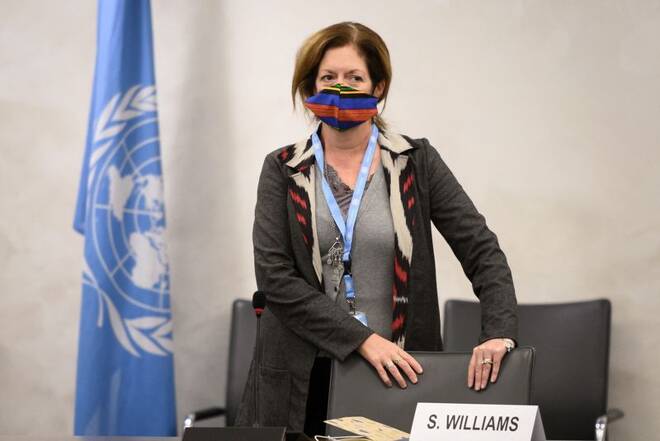Advertisement
Advertisement
U.N. Libya adviser urges focus on elections
By:
TUNIS (Reuters) - A senior U.N. official said on Monday the main focus after the delay of last week's planned election in Libya should be on ways to move forward with the vote rather than on the fate of the interim government.
TUNIS (Reuters) – A senior U.N. official said on Monday the main focus after the delay of last week’s planned election in Libya should be on ways to move forward with the vote rather than on the fate of the interim government.
The U.N. secretary general’s special adviser on Libya, Stephanie Williams, told Reuters in an interview that most Libyans wanted an end to what she called “this interminable transitional period”.
The election had been scheduled for Dec. 24 but was delayed after disputes over basic rules including the eligibility of candidates and the judiciary’s role in appeals.
The eastern-based parliament, elected in 2014, is debating how long to delay the election and whether the interim Government of National Unity (GNU) and Prime Minister Abdulhamid al-Dbeibah, a presidential candidate, can stay in place.
Asked if she believed the GNU’s mandate was still valid, Williams said that was up to the parliament, but that “the real focus needs to be on producing elections”.
She asked if Libya’s political class would again “bring in another government that’s going to run for another couple of years, that’s again not entirely representative of the Libyan people”.
Any changes to the government would have to be made following the rules set by previous political agreements that were internationally recognised, she added.
However, she said that any election needed to take place on a level playing field in which no candidate enjoyed the advantages of holding an official post – a clear reference to Dbeibah.
“Everyone should step back for a certain period and that means that all candidates who may wish to have one foot in and one foot out, that they have both feet out,” she said.
Simultaneous parliamentary and presidential elections were demanded by a roadmap agreed last year by the Libyan Political Dialogue Forum (LPDF), a group Williams convened last year when she was the acting U.N. envoy.
The LPDF roadmap gave the forum, composed of 75 U.N.-picked delegates drawn from across Libya’s fragmented factions, the right to take some actions in the event of obstruction by the country’s existing political entities.
Williams said she had not yet decided what role the LPDF could still play in the process, but that she had been holding meetings with small groups from among its members and might continue to do so.
“I had a meeting last week with a smaller subset. It was a consultative session and I may continue to do that,” she said. “I’m still weighing all of this,” she added.
(Reporting by Angus McDowall; Editing by Alistair Bell)
About the Author
Reuterscontributor
Reuters, the news and media division of Thomson Reuters, is the world’s largest international multimedia news provider reaching more than one billion people every day. Reuters provides trusted business, financial, national, and international news to professionals via Thomson Reuters desktops, the world's media organizations, and directly to consumers at Reuters.com and via Reuters TV. Learn more about Thomson Reuters products:
Did you find this article useful?
Latest news and analysis
Advertisement
